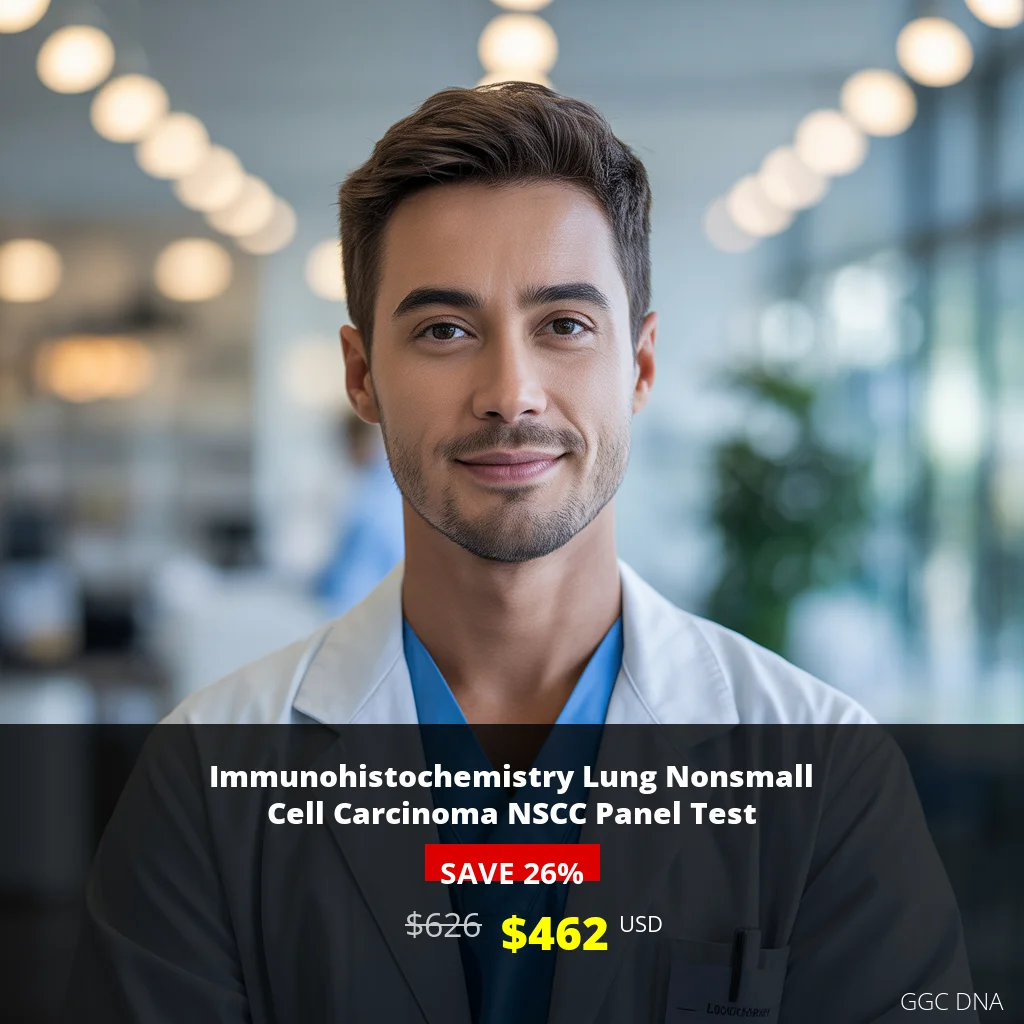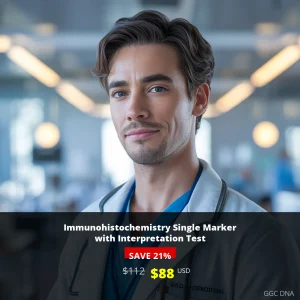Immunohistochemistry Lung Nonsmall Cell Carcinoma NSCC Panel Test
Comprehensive Introduction to Lung Cancer Biomarker Testing
The Immunohistochemistry Lung Nonsmall Cell Carcinoma NSCC Panel represents a cutting-edge diagnostic approach in modern oncology. This specialized test employs sophisticated immunohistochemical techniques to detect specific protein biomarkers that are crucial for accurate diagnosis and treatment planning in non-small cell lung carcinoma (NSCLC). As the most common form of lung cancer, NSCLC requires precise characterization to determine the most effective therapeutic strategies and improve patient outcomes.
Immunohistochemistry (IHC) has revolutionized cancer diagnostics by enabling pathologists to visualize specific protein expressions within tumor tissue samples. This panel specifically targets biomarkers that play critical roles in lung cancer pathogenesis, treatment response prediction, and prognosis assessment. The comprehensive nature of this test provides clinicians with essential information needed to develop personalized treatment plans tailored to each patient’s unique cancer profile.
What the Test Measures and Detects
The Immunohistochemistry Lung NSCC Panel evaluates five key biomarkers that provide comprehensive insights into lung cancer characteristics:
Primary Biomarkers Analyzed
- ROS1: Detects rearrangements in the ROS1 gene, which are present in approximately 1-2% of NSCLC cases and indicate potential responsiveness to targeted therapies
- P40: Identifies squamous cell carcinoma differentiation, helping distinguish between different NSCLC subtypes
- TTF1: Thyroid transcription factor-1 expression indicates adenocarcinoma differentiation and helps determine tumor origin
- PDL1: Programmed death-ligand 1 expression levels predict response to immune checkpoint inhibitors and immunotherapy
- ALKD5F3: Anaplastic lymphoma kinase detection identifies patients who may benefit from ALK inhibitor therapies
Who Should Consider This Test
This comprehensive biomarker panel is essential for patients with suspected or confirmed non-small cell lung carcinoma. Specific indications include:
Clinical Scenarios Requiring Testing
- Patients with newly diagnosed lung masses or nodules suspicious for malignancy
- Individuals with confirmed NSCLC requiring comprehensive biomarker profiling
- Patients being evaluated for targeted therapy or immunotherapy options
- Cases where precise NSCLC subtyping is needed for treatment planning
- Patients with advanced or metastatic lung cancer requiring biomarker analysis
- Individuals with treatment-resistant NSCLC needing alternative therapeutic options
Significant Benefits of Comprehensive Biomarker Testing
The Immunohistochemistry Lung NSCC Panel offers numerous advantages for both patients and healthcare providers:
Clinical Advantages
- Precise Diagnosis: Enables accurate classification of NSCLC subtypes, which is crucial for appropriate treatment selection
- Targeted Therapy Guidance: Identifies patients who may benefit from specific targeted therapies based on biomarker expression
- Immunotherapy Prediction: PDL1 expression levels help predict response to immune checkpoint inhibitors
- Personalized Treatment: Facilitates development of individualized treatment plans based on unique tumor characteristics
- Prognostic Information: Provides valuable insights into disease progression and potential outcomes
- Therapeutic Optimization: Helps avoid ineffective treatments and potential side effects
Understanding Your Test Results
Interpreting the Immunohistochemistry Lung NSCC Panel requires specialized expertise from pathologists and oncologists. Here’s a general guide to understanding your results:
Result Interpretation Framework
- Positive ROS1: Indicates potential responsiveness to ROS1 inhibitors such as crizotinib
- P40 Expression: Suggests squamous cell carcinoma differentiation, influencing treatment choices
- TTF1 Positivity: Supports adenocarcinoma diagnosis and helps exclude metastatic tumors
- PDL1 Expression Levels: Higher expression (typically >50%) suggests better response to immunotherapy
- ALK Positivity: Indicates potential benefit from ALK inhibitors like alectinib or ceritinib
Your healthcare provider will discuss the specific implications of your results and develop a comprehensive treatment plan based on the biomarker profile. The combination of these biomarkers provides a comprehensive picture of your cancer’s molecular characteristics, enabling more precise therapeutic decisions.
Test Pricing and Availability
| Test Component | Price Type | Amount (USD) |
|---|---|---|
| Immunohistochemistry Lung NSCC Panel | Discount Price | $462 |
| Immunohistochemistry Lung NSCC Panel | Regular Price | $626 |
Nationwide Testing Availability
We proudly serve patients across the United States with comprehensive diagnostic services. Our network includes specialized testing facilities in major metropolitan areas including New York, Los Angeles, Chicago, Houston, Phoenix, Philadelphia, San Antonio, San Diego, Dallas, and San Jose. Each location maintains the same high standards of quality and accuracy that define our commitment to patient care.
Take Action for Your Health
Early and accurate diagnosis is crucial for effective lung cancer management. The Immunohistochemistry Lung NSCC Panel provides the comprehensive biomarker information needed to make informed treatment decisions. Don’t delay in obtaining the critical diagnostic information that could significantly impact your treatment outcomes.
Call or WhatsApp us today at +1(267) 388-9828 to schedule your test or speak with our genetic counseling specialists. Our team is ready to assist you with test scheduling, insurance verification, and any questions you may have about the testing process.
With rapid turnaround times of 5-7 days and comprehensive biomarker analysis, this test represents a vital tool in the modern management of non-small cell lung carcinoma. Trust our expertise in cancer diagnostics to provide the detailed information your healthcare team needs to develop the most effective treatment strategy for your specific situation.







